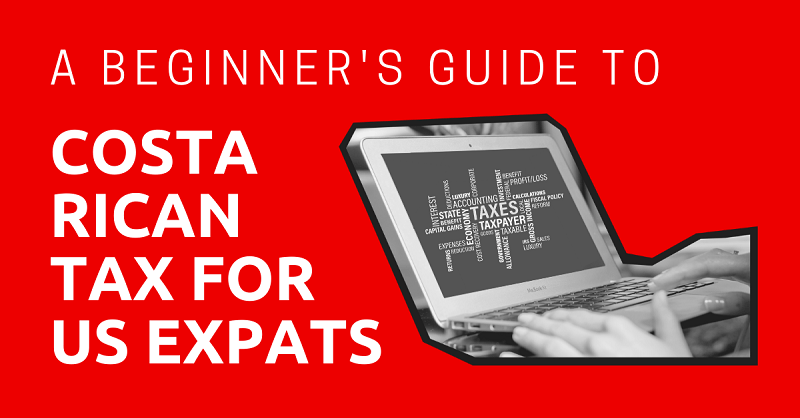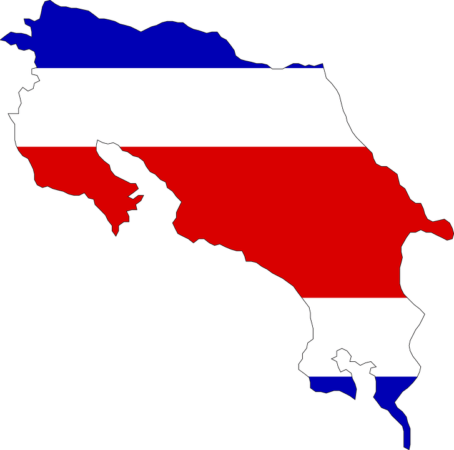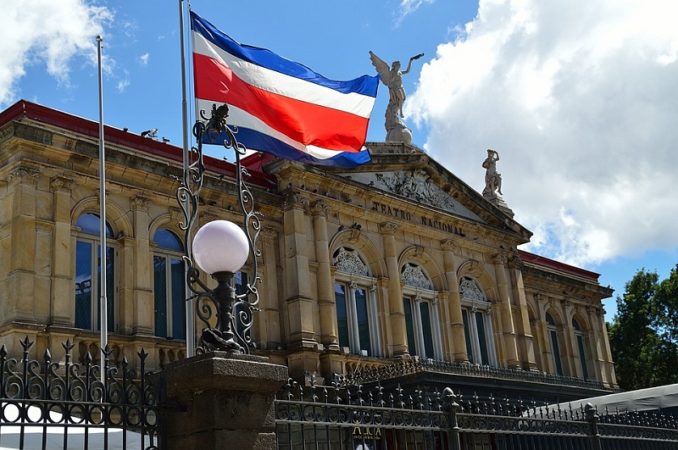
Struggling to figure out whether you have to pay taxes as an American expat in Costa Rica, or better yet, if you still have to pay U.S. taxes as an expat living in the country?
You may have moved to Costa Rica because of its low cost of living, but unfortunately you must file your income taxes every year, whether you’re working in the country, outside of it, or collecting a pension while here.
With that in mind, this guide will explain to you the Costa Rica tax system, help you identity if you have to file taxes in both Costa Rica and the U.S., and show you which tax forms you mostly likely have to file.
This article will take approximately 21 minutes to read. Don't have the time right now? No worries. You can email the ad-free version of the article to yourself and read it later!
Disclaimer: This article may include links to products or services offered by ExpatDen’s partners, which give us commissions when you click on them. Although this may influence how they appear in the text, we only recommend solutions that we would use in your situation. Read more in our Advertising Disclosure.
Contents
- Costa Rica Tax System
- Tax Residents and Non-Tax Residents
- How Much Tax Do You Have To Pay?
- Costa Rica Tax on Foreigner-Earned Income
- How to File Costa Rica Tax
- Costa Rica Tax Forms
- When Do I Have to File Costa Rica Tax Returns?
- Joint Tax Filing in Costa Rica
- Do I Have to File US Tax Returns while Living in Costa Rica?
- Foreign-Earned Income Exclusion
- Foreign Account Tax Compliance Act
- Decreasing US Taxes While Living in Costa Rica
- How to Deal with Income Taxes in Costa Rica and the US
- Pension Tax
- U.S. Tax on Dividends and Investment Taxes
- When to File US Tax While Living in Costa Rica
- Now, on to You
Costa Rica Tax System
The Costa Rican tax system for its citizens is governed by a concept known as territorialism. This means all income that is considered foreign is not taxed by the government.
On the other hand, all personal income earned within Costa Rica is taxed dependent on the amount of income.
To clarify, if you source of income comes outside of Costa Rica, you don’t need to pay Costa Rican income taxes. It can be income from investments, regular income, or a social security pension, you do not have any tax obligations to Costa Rica.
This also applies if you live in Costa Rica as a US expat and you work online for a company based in the United States or own a business abroad. You will be exempt from any and all Costa Rican income taxes.
However, if the source of income comes from Costa Rica, such as Costa Rican company, you need to pay Costa Rican income tax.
Income Taxes
Income taxes in Costa Rica apply only if you generate an income from your Costa Rican business or employment.
Taxes are also imposed whether or not the income stems from employment. All individuals in Costa Rica who are employed are accountable for a monthly percentage tax for withholdings, which is determined by salary amount.
Income in Costa Rica is taxed at a progressive rate with a maximum of 25 percent from employment and self-employment.
However, tax rates from employment are calculated on a monthly basis, and taxes from self-employment are calculated on an annual basis.
Property Transfers/Purchase Taxes
When a property is purchased it must be transferred into the purchaser’s name. When this is done a 1.5 percent tax is calculated based on the property value.
Sales Taxes
The Costa Rican sales tax is referred to as VAT and is currently 13 percent. This tax amount gets imposed twice: once after being imported and once as an individual buys the item.
Tax is assessed on each item excluding items for medicinal purposes, food, or items determined to be nontaxable.
As a business owner, you will be required to obtain the tax from all purchasers.
Tax Residents and Non-Tax Residents
If you live in Costa Rica for more than 183 days a year, you’re considered a tax resident.
Income taxes for tax residents in Costa Rica are set at a progressive rate, which range from 0 percent to 25 percent.
However, if you’re a non-tax resident, your income tax rate will fixed at either 10 percent, 15 percent, or 25 percent depending on the income type and is withheld by your employer.
How Much Tax Do You Have To Pay?
Regardless of how much income you make, the government of Costa Rica requires that you disclose the amount.
You’re obligated to pay an income tax for any income made within Costa Rica.

Nevertheless, while working for an employer in Costa Rica for a short amount of time or more than six months, you may obtain residency to cover the taxes accrued during the term of employment.
This also applies to time frames that are less than six months.
Tax Residents
Resident taxes are calculated based on the amount of money you earn every month. This means a monthly salary of 842,000 colons or less is tax exempt.
For salaries above this amount but no more than 1.236 million colons a tax of 10 percent will be assessed, and if a higher salary is obtained, then the monthly tax increases to 15 percent to 25 percent.
Here’s a full income tax rate in Costa Rica for salaries:
- 0 – 842,000: 0%
- 842,000 – 1,236,000: 10%
- 1,236,000 – 2,169,000: 15%
- 2,169,000 – 4,337,000: 20%
- more than 4,337,000: 25%
If you’re self-employed, then the tax is assessed on an annual basis.
If your annual income is below 3.742 million colons, then tax is not assessed. If your annual income is more than 3.742 million colons but less than 5.589 million colons, then an annual tax of 10 percent is assessed.
When your annual income is above 5.589 million colons, your annual tax rate is going to be 15 percent to 25 percent.
Non-Tax Residents
Under your non-residency status, a tax of 10 percent will be assessed to the earned income received within Costa Rica.
If you’re a non-resident and work independently, a 15 percent tax will be assessed on your earned income for any service considered to be professional.
For any advice provided, you will be taxed 25 percent.
Dividend and Interest Income
Dividend and interest income are usually subject to 15% tax in Costa Rica.
Costa Rica Tax on Foreigner-Earned Income
Tax in Costa Rica uses a territorial taxation system. This means you don’t have to pay taxes in Costa Rica for any income you made from outside of the country.
You’re only subject to tax within Costa Rica.
How to File Costa Rica Tax
While working in Costa Rica, taxes are withheld from the salary you earn. The good thing, though, is that you’ll have no need for tax filing. This is because both social security and income taxes are paid on a monthly basis.
In case you are self-employed and receive income through fees, services, royalties, commissions, or rental property, you need to file tax.
The filing process is entirely online for all documents needing to be filed. With the elimination of paper filing, taxes can be paid in a quicker fashion.
The only exception to paper filing is for any penalty that requires you to take the form to a bank for payment.
However, filing taxes in Costa Rica can be complicated. In order to do it, you have to be the company’s legal representative to declare and pay taxes. This is due to the personal responsibility that it places on the individual for accurate filing.
To begin the filing process, you need to create an account through the Administración Tributaria Virtual (ATV) and file taxes there.
However, you need to make sure that you qualify to obtain the account with the ATV system by showing either the NITE number assigned to you, a residency card (DIMEX), or an ID card (cedula).
The only exception is if you’re working independently.
For tax purposes, the Ministry of Finance will have all of the required tax forms you need for your situation.
Costa Rica Tax Forms
When you contact the Ministry of Finance, you will find that a few tax forms are available depending on your situation.
Below are a few that you may need to become familiar with.
D150 Tax Form
The D150 provides a thorough summary of your total payments, withholdings, or retentions that may have been completed through the business during the year.
A few examples include:
- Total income tax from salary
- Any and all stockholder payments
- All foreign financial settlements that result from any payments made to executive boards
- Any settlements made to entities outside of Costa Rica, made specifically for television, interests, fees, transport, etc.
You have until 30 November to file this form. And although filing this form seems to be voluntary, it’s actually mandated by law if any of the aforementioned is conducted.
D151 Tax Form
The D151 is a summary of vendor settlements concerning all expenses associated with all clients throughout the year and within Costa Rica.
The summary must also fall in line with a few stipulations:
- If an amount over 2,000,000 colons was obtained at any point in the year, then the customer involved with the transaction must be disclosed.
- If a vendor was paid more than 2,000,000 colons at any point in the year, then the vendor must be disclosed.
- You must also disclose anyone that receives over 50,000 colons in more than one way, such as interests, fees, commissions, or leases.
The D151 has a 30 November deadline and is a crosscheck of all individuals receiving payments and if the taxes from the business are filed and the amount. It is the sister form to the 1099.
It’s important to remember that the fee for late filing can be as high as US$7,500.
D101 Tax Form
The gold mine of all Costa Rican tax forms is the D101. This is the form you use to submit annual taxes, and it involves disclosing a summary of the following:
- Equity
- Expenses that are itemized
- Revenue that is non-taxable and taxable
- All liabilities
- All assets
The foundation of the entire calculation of taxes lies with Section 2 and 3 (revenues and expenses).
With that, the Ministry of Finance will give their attention to the revenues and expenses sections more than any other section. You have to submit this form by 15 December.
Remember, this tax form needs to be completed by both individual business owners and corporations that are operating in Costa Rica, such as realtors or vacation home rentals.
Failing to file a D101 may cause you to be fined an amount of over US$380 plus interest for any liability for income tax.
When Do I Have to File Costa Rica Tax Returns?
Costa Rica’s tax year starts on 1 October and ends 30 September. Nevertheless, you can take advantage of a calendar year to get the taxes fully paid depending on your situation.
If you pay taxes according to a fiscal year, you have to report liabilities by 15 December.
If you miss the filing date for taxes, you’ll be subjected to a fine. Even worse, if you fail to file and never do, then you’ll find it impossible to obtain important paperwork pertaining to your business for being non-compliant with your taxes.
Joint Tax Filing in Costa Rica
If you and your spouse are both self-employed, then separate tax filings must be made. If you have children, then only the mother or father can claim a personal child credit.
Currently, joint tax filing is not recognized in Costa Rica.
Do I Have to File US Tax Returns while Living in Costa Rica?
If you live in Costa Rica, you still have to file U.S. taxes.
The only exception is when you make an annual income less than the standard deduction for that year, which is currently set at US$13,850 for a single person and US27,700 if you file jointly with your spouse.

However, please note that if you are self-employed and make more than US$400, you must file U.S. taxes.
It’s important to remember that the length of stay in the U.S. or Costa Rica doesn’t have any influence on whether you need to file U.S. taxes.
You can do it easily by using a tax filing software such as TurboTax.
Foreign-Earned Income Exclusion
If you live outside of the U.S. for more than 330 days a year, you might be entitled to a Foreign-Earned Income Exclusion (FEIE).
It basically gives you a tax deduction for the amount of US$120,000 in 2023, in addition to standard deductions.
Foreign Account Tax Compliance Act
As an American citizen living abroad there are many obligations you must take care of and taxes will always be a big one to remember.
Besides taxes, you also have to report other finances regarding bank account balances abroad.
The information disclosed is mandatory and is regulated by way of the Foreign Account Tax Compliance Act (FATCA) agreement, which both the U.S. and Costa Rica have made official.
With the FATCA, all U.S. citizens must disclose any and all assets that are above a certain amount held in a foreign country. If the amount exceeds the limit, then the IRS is to be notified of the assets.
In order for FATCA to be used, you must submit form 8938 along with your federal tax returns.
Since FATCA regulations are subject to change, you should always check the IRS’s website.
Once there, you’ll see many links related to FATCA, such as different assets that you may need to disclose according to the rules governing the form.
You’ll also see a link that provides a requirements summary that will be helpful when it comes time to report taxes as an expat. It gives excellent guidance on the entire process and what the individual responsibilities entail.
It’s highly suggested that you stay up to date with any information concerning FATCA so that you don’t miss out on important updates.
FATCA Concerning Foreign Banks
Under FATCA, any bank that opens an account for an expat must notify the IRS. The IRS must also be notified of any accounts in which an expat has partial ownership of but is not held by the expat.
Foreign banks who need additional guidance can also contact the IRS. Just like expats, the information available is also helpful to the financial institution and will easily guide them through the process so that all requirements are met.
It’s also suggested that the foreign bank stay up to date and stay aware of any changes that may occur to the FATCA form.
FBAR and Costa Rican Bank Accounts
Opening a Costa Rican bank account seems even more difficult today than it was in the past. However, you may have better luck with smaller banks as opposed to national banks.
So it’s important that you attempt to open an account shortly after arriving – or at least find out if you can.
If you currently have at least US$10,000 in a foreign bank account, you must disclose it to the Treasury Department via a form known as the Foreign Bank Account Report (FBAR).
With the FBAR or FinCen Form 114, all financial bank accounts must be accounted for that all expats hold.
For expats obtaining a rentista residency in Costa Rica, the filing of the FBAR will need to be completed due to the large deposit required.
Decreasing US Taxes While Living in Costa Rica
As an expat calling Costa Rica home, you have a few ways to lower your US taxes. Below we’ve listed a few of the most commonly used by expats living abroad.
Foreign Earned Income Exclusion
Under the Foreign Earned Income Exclusion (FEIE) you are entitled to certain tax deductions based on your foreign-earned income.
Keep in mind you must adjust this number annually to account for any inflation.
Foreign Housing Exclusion
With the Foreign Housing Exclusion (FHE), you can deduct a portion of you housing costs while living abroad.
Foreign Tax Credit
With the Foreign Tax Credit (FTC) you don’t have to panic about double taxes that may occur because of living in Costa Rica as a U.S. citizen when you claim the FTC.
So, if you have any income from a foreign source and it’s not eliminated completely by the others, then this credit may be a good path to take when tax time comes around in the U.S.
Also, you can decide to have your taxes set up like an itemization – or a credit – for tax purposes. A lot of times, it’s best to use this advantage as a credit
How to Deal with Income Taxes in Costa Rica and the US
When you live under residency status in Costa Rica, you’ll be under the same tax rates as Costa Rican citizens who make the same amount as you.
Remember though, being a citizen of the U.S. means you continue to file the yearly IRS taxes too. This includes reporting any foreign bank accounts you have opened by way of the FBAR.
The good thing about the FBAR is that it’s only needed if a citizen’s foreign bank account has a minimum amount of US$10,000 within the tax year.
It can be a confusing and complicated process to stay on top of taxes if you’re never in your home country. This is why it is important to get in touch with a tax specialist who deals with taxes for expats.
He or she will be able to guide you with the best course of action to take if you need to clear up any tax issues.
Pension Tax
While the entire world continues to adopt other types of tax systems, the U.S. continues to remain steadfast in its taxation based on citizenship.
So unfortunately, having a pension while retiring in Costa Rica means you’re liable for the U.S. taxes, unless it’s a social security pension.
U.S. Tax on Dividends and Investment Taxes
Since U.S. citizens are taxed worldwide, you’re also subject to U.S. tax on income generated from dividends and investments in the same way as you are in the U.S.
When to File US Tax While Living in Costa Rica
When filing U.S. taxes, you are granted a two-month extension up to 15 June. If you need even more time, you have to fill out IRS Form 4868, which gives you four more months.
Now, on to You
We hope that this article answers all of your questions about taxes in Costa Rica.
Please note that taxes are a complicated matter. Tax regulations are also subject to change.
With that said, find a tax advisor who is well-versed in taxes for U.S. citizens living in Costa Rica to make sure you stay compliant in both countries.








As a US Resident I’m selling property in CR, gain expected, should be subject to 15% CR Taxes, is this amount available to US Foreign Tax credit, to avoid double taxation
Since each person has a very different taxation situation, it’s best to get this kind of advice from a tax advisor.